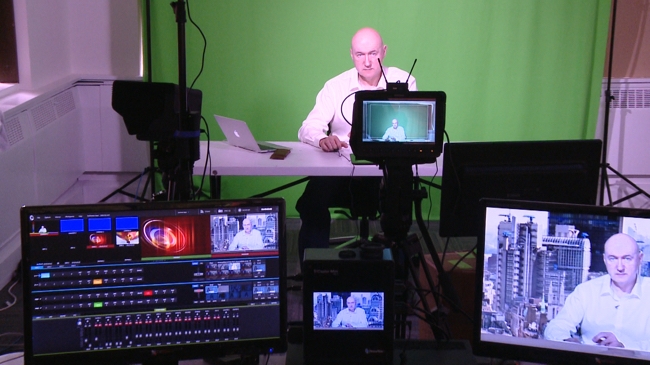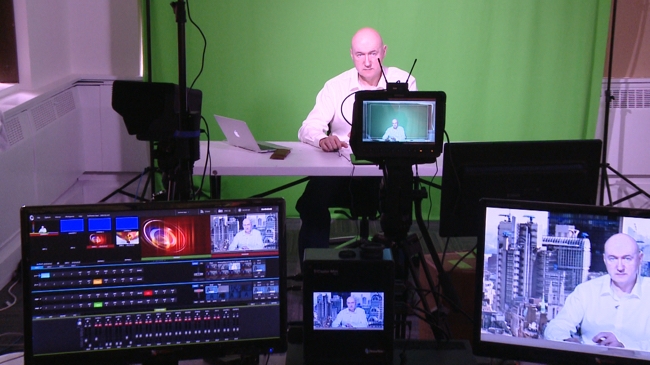
 RedShark TV Studio
RedShark TV Studio
One of the fastest expanding areas of our industry is corporate video. Now more often called "video communication", it's a great way to get your video skills used and paid for. Here's a TV programme we made about it.
The glamorous side of video is making films and TV programmes. New technology and the incredibly low price of "cinematic" cameras is driving this trend, along with the desire by almost everyone in the industry to make something memorable, enjoyable or just plain effective.
Meanwhile, away from the present and future film stars and directors, there's another part of the video industry that's growing very fast. And unless you're involved with it, the chances are that you'll not have noticed it. We didn't until we had a conversation with our friends at NewTek, the makers of the TriCaster and TriCaster Mini.
One of the biggest growth areas for video, it turns out, is inside companies, who use it to communicate with their staff, to inspire them, to train them and - to get the message across in the very best way.
They're using video because it's engaging. To cut a long story short, it works. It's cost effective too.
So we thought we'd look into this in more detail. We're not experts in video communication (Corporate Video is what it used to be called) but we wanted to try it. If you're a freelance video professional or you work inside a company that is open to new ideas, you might find that there's a lot of work potential for you as a video expert. That's why we wanted to find out about it. This is a genuine new opportunity for video professionals.
And the way we've done it is to build our own virtual TV studio, make a TV program, and talk to experts. We show you how to put a studio together, how to plan it, and ultimately about how to distribute the video make.
Remember, we know a fair bit about video in general - like most of our readers - but we've never done this before. We made mistakes so that you don’t have to! In the second program, we'll learn from these errors and bring you tips and techniques to make a really professional program. (Any examples of poor video practice in this video are entirely down to us, and doesn’t reflect on the quality of the equipment that our generous sponsors have loaned us). Please let us have your questions for the next programme. Send them to: editor@redsharknews.com.
Meanwhile, warts and all, here's our first effort. We hope you enjoy it.
Tags: Studio & Broadcast


Comments